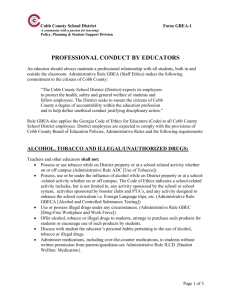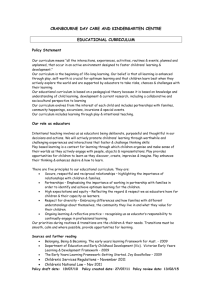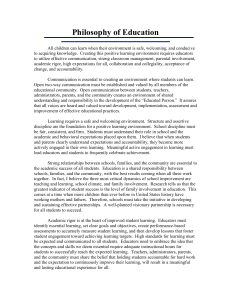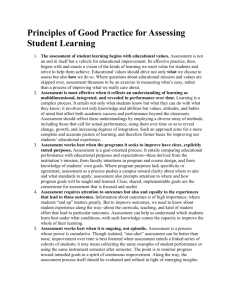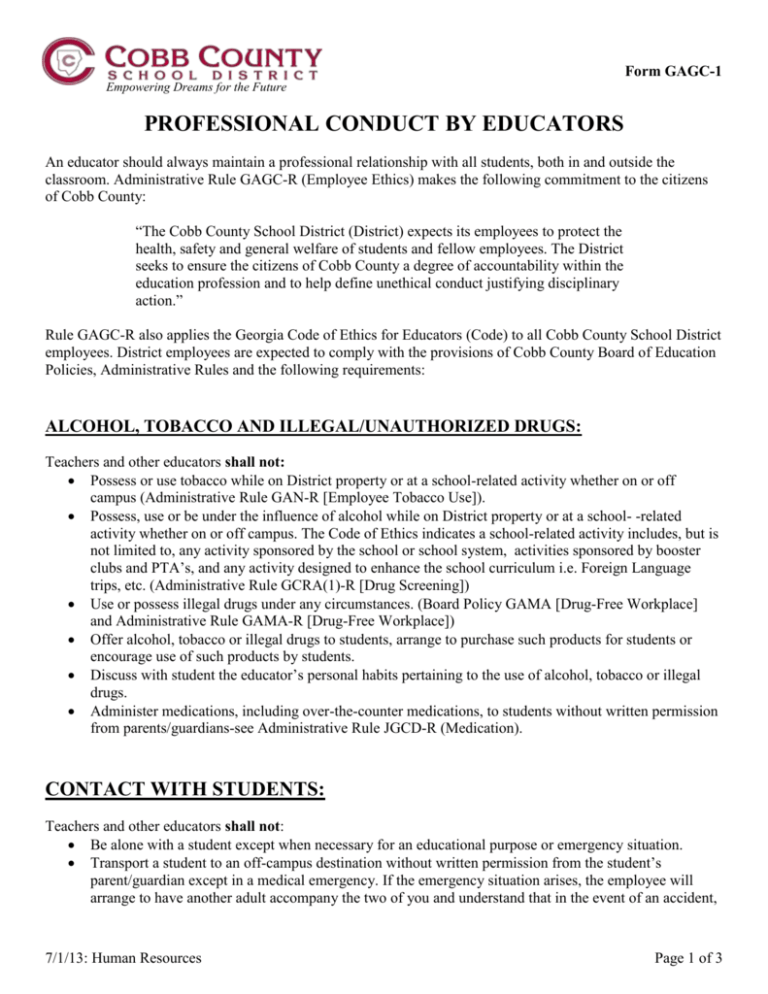
Form GAGC-1
Empowering Dreams for the Future
PROFESSIONAL CONDUCT BY EDUCATORS
An educator should always maintain a professional relationship with all students, both in and outside the
classroom. Administrative Rule GAGC-R (Employee Ethics) makes the following commitment to the citizens
of Cobb County:
“The Cobb County School District (District) expects its employees to protect the
health, safety and general welfare of students and fellow employees. The District
seeks to ensure the citizens of Cobb County a degree of accountability within the
education profession and to help define unethical conduct justifying disciplinary
action.”
Rule GAGC-R also applies the Georgia Code of Ethics for Educators (Code) to all Cobb County School District
employees. District employees are expected to comply with the provisions of Cobb County Board of Education
Policies, Administrative Rules and the following requirements:
ALCOHOL, TOBACCO AND ILLEGAL/UNAUTHORIZED DRUGS:
Teachers and other educators shall not:
Possess or use tobacco while on District property or at a school-related activity whether on or off
campus (Administrative Rule GAN-R [Employee Tobacco Use]).
Possess, use or be under the influence of alcohol while on District property or at a school- -related
activity whether on or off campus. The Code of Ethics indicates a school-related activity includes, but is
not limited to, any activity sponsored by the school or school system, activities sponsored by booster
clubs and PTA’s, and any activity designed to enhance the school curriculum i.e. Foreign Language
trips, etc. (Administrative Rule GCRA(1)-R [Drug Screening])
Use or possess illegal drugs under any circumstances. (Board Policy GAMA [Drug-Free Workplace]
and Administrative Rule GAMA-R [Drug-Free Workplace])
Offer alcohol, tobacco or illegal drugs to students, arrange to purchase such products for students or
encourage use of such products by students.
Discuss with student the educator’s personal habits pertaining to the use of alcohol, tobacco or illegal
drugs.
Administer medications, including over-the-counter medications, to students without written permission
from parents/guardians-see Administrative Rule JGCD-R (Medication).
CONTACT WITH STUDENTS:
Teachers and other educators shall not:
Be alone with a student except when necessary for an educational purpose or emergency situation.
Transport a student to an off-campus destination without written permission from the student’s
parent/guardian except in a medical emergency. If the emergency situation arises, the employee will
arrange to have another adult accompany the two of you and understand that in the event of an accident,
7/1/13: Human Resources
Page 1 of 3
your personal insurance will be the primary coverage for you and the sole coverage for passengers-see.
(Administrative Rule IFCB-R [Field Trips])
Have any physical contact with a student unless necessary to protect a student(s), teacher(s) or other
person(s) or unless required as part of a student’s IEP. (Administrative Rule JCD-R [Student Conduct])
COMMUNICATING WITH STUDENTS:
Administrative Rule JICK (Sexual Harassment), Board Policy GAEB (Harassment) and Administrative Rule
GAEB-R (Harassment).
Teachers and other educators shall not:
Use crude, vulgar, lewd, discriminatory, offensive or profane language on District Property or at District
sponsored events.
Call students obscene or demeaning names such as stupid, jerk, moron, retarded, nerd, etc.
Use obscene gestures
Tell crude, vulgar, lewd, discriminatory, offensive or profane jokes on District property or at District
sponsored events.
Display or share crude, vulgar, lewd, discriminatory, offensive or profane objects, printed materials or
pictures.
Make degrading, lewd, discriminatory, offensive, profane or suggestive comments to students about
their or other students’ physical appearance or development.
Call, text, e-mail or share on Websites or blogs with students for anything other than school business.
(Board Policy IFBGE [Internet Safety] and Administrative Rule IFBG-R [ Internet Acceptable Use])
DATING AND SEX:
Administrative Rule JCAC-R (Sexual Harassment Reporting and Investigation).
Teachers and other educators shall not:
Discuss their sexual orientation, preference or habits with students, or inquire about theirs.
Date students.
Discuss their dating or intimate marital activities with students.
Engage in any sexual conduct or have any sexual contact with students.
DRESS:
See Administrative Rule GBRL-R (Employee Dress Code).
Teachers and other educators, while on District property or at a District-sponsored activity whether on or off
campus, shall not:
Dress in revealing, tight-fitting, low-cut clothing or garments.
Wear clothing with slogans or product advertisements that promote the use of alcohol, tobacco, drugs,
sex or that advertise establishments that are age-inappropriate for students.
Display tattoos or brands anywhere on the body that are obscene, advocate sexual, racial, disability or
religious discrimination or that are of a nature that tends to bring discredit to the District.
Attach, affix or display objects, articles, jewelry or ornamentation to or through the nose, tongue or any
exposed body part except for earrings worn only on the ear(s).
7/1/13: Human Resources
Page 2 of 3
PERSONAL/PRIVATE GAIN:
Teachers and other educators shall not:
Solicit sales or services, advertise products, or endorse one product over another in their relations with
students, parents or employees. (Board Policy BCB [Conflict of Interest]; Administrative Rule GAGC-R
[Employee Ethics] and KJ-R [Advertising in Schools].
Use classroom instruction to influence students, or through them, their parents, regarding any one
political or partisan side of an issue. (Administrative Rule IKB-R [Controversial Issues])
Coerce students to adopt a particular religious belief or set of beliefs or to disavow a particular religious
belief or set of beliefs. (Administrative Rule IKB-R [Controversial Issues])
Interject their personal faith-based beliefs or lack thereof, into classroom discussions. (Administrative
Rule IKB-R [Controversial Issues]).
7/1/13: Human Resources
Page 3 of 3

